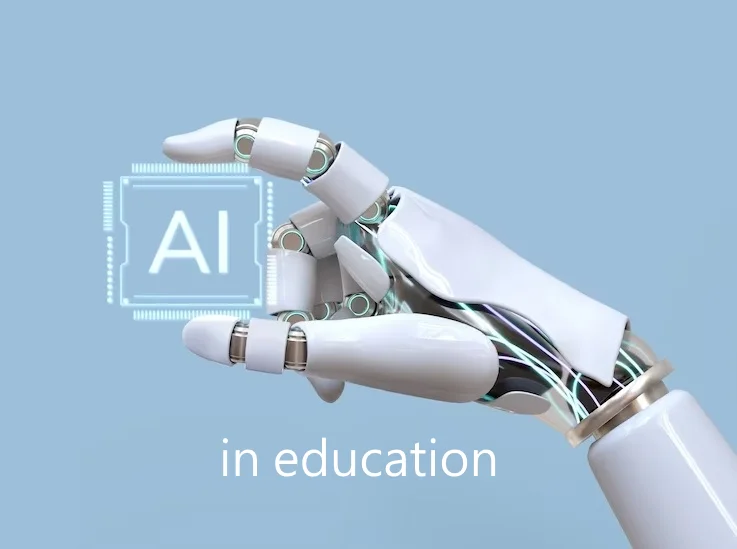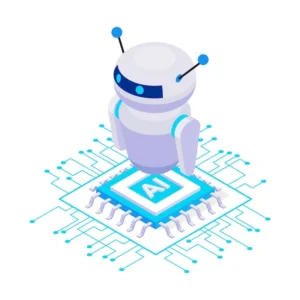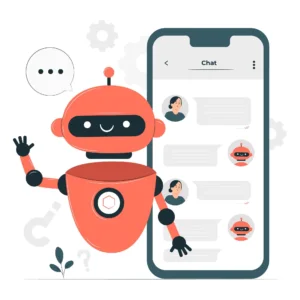
Artificial Intelligence (AI) in Education & Assessment: Opportunities and Best Practices
Artificial intelligence (AI) is poised to address some challenges that education deals with today, through innovation of teaching and learning processes. By applying AI in education technologies, educators can determine student needs more precisely, keep students more engaged, improve learning, and adapt teaching accordingly to boost learning outcomes. A process of utilizing AI in education started off from looking for a substitute for one-on-one tutoring in the 1970s and has been witnessing multiple improvements since then. This article will look at some of the latest AI developments used in education, their potential impact, and drawbacks they possess.
Application of AI

Recently, a helping hand of AI technologies has permeated into all aspects of educational process. The research that has been going since 2009 shows that AI has been extensively employed in managing, instructing, and learning sectors. In management, AI tools are used to review and grade student assignments, sometimes they operate even more accurately than educators do. There are some AI-based interactive tools that teachers apply to build and share student knowledge. Learning can be enhanced through customization and personalization of content enabled by new technological systems that leverage machine learning (ML) and adaptability.
Below you may find a list of major educational areas where AI technologies are actively involved and that are worthy of being further developed.
| Personalized learning | This educational approach tailors learning trajectory to individual student needs and interests. AI algorithms analyze student information (e.g. learning style and performance) to create customized learning paths. Based on student weaknesses and strengths, AI recommends exercises and learning materials. AI technologies are increasingly pivotal in online learning apps, personalizing education and making it more accessible to a diverse learner base. |
| Adaptive learning | This approach does the same as personalized learning but in real-time stimulating learners to be engaged and motivated. ALEKS is a good example of an adaptive learning program. |
| Learning courses | These are AI-powered online platforms that are designed for eLearning and course management, and enable learners to browse for specific courses and study with their own speed. These platforms offer learning activities in an increasing order of their difficulty aiming at ultimate educational goals. For instance, advanced Learning Management Systems (LMS) and Massive Open Online Courses (MOOCs). |
| Learning assistants/Teaching robots | AI-based assistants can supply support and resources to learners upon request. They can respond to questions, provide personalized feedback, and guide students through learning content. Such virtual assistants might be especially helpful for learners who cannot access offline support. |
| Adaptive testing | This mode of delivering tests means that each examinee will get to respond to specific questions that correspond to their level of expertise based on their previous responses. It is possible due to AI algorithms enabled by ML and psychometric methods, i.e. item response theory (IRT). You can get more information about adaptive testing from Nathan Thompson’s blog post. |
| Remote proctoring | It is a type of software that allows examiners to coordinate an assessment process remotely whilst keeping confidentiality and preventing examinees from cheating. In addition, there can be a virtual proctor who can assist examinees in resolving any issues arisen during the process. The functionality of proctoring software can differ substantially depending on the stakes of exams and preferences of stakeholders. You can read more on this topic from the ASC’s blog here. |
| Test assembly | Automated test assembly (ATA) is a widely used valid and efficient method of test construction based on either classical test theory (CTT) or item response theory (IRT). ATA lets you assemble test forms that are equivalent in terms of content distribution and psychometric statistics in seconds. ASC has designed TestAssembler to minimize a laborious and time-consuming process of form building. |
| Automated grading | Grading student assignments is one of the biggest challenges that educators face. AI-powered grading systems automate this routine work reducing bias and inconsistencies in assessment results and increasing validity. ASC has developed an AI essay scoring system—SmartMarq. If you are interested in automated essay scoring, you should definitely read this post. |
| Item generation | There are often cases when teachers are asked to write a bunch of items for assessment purposes, as if they are not busy with lesson planning and other drudgery. Automated item generation is very helpful in terms of time saving and producing quality items. |
| Search engine | The time of libraries has sunk into oblivion, so now we mostly deal with huge search engines that have been constructed to carry out web searches. AI-powered search engines help us find an abundance of information; search results heavily depend on how we formulate our queries, choose keywords, and navigate between different sites. One of the biggest search engines so far is Google. |
| Chatbot | Last but not least… Chatbots are software applications that employ AI and natural language processing (NLP) to make humanized conversations with people. AI-powered chatbots can provide learners with additional personalized support and resources. ChatGPT can truly be considered as the brightest example of a chatbot today. |
Highlights of AI and challenges to address

Today AI-powered functions revolutionize education, just to name a few: speech recognition, NLP, and emotion detection. AI technologies enable identifying patterns, building algorithms, presenting knowledge, sensing, making and following plans, maintaining true-to-life interactions with people, managing complex learning activities, magnifying human abilities in learning contexts, and supporting learners in accordance with their individual interests and needs. AI allows students to use handwriting, gestures or speech as input while studying or taking a test.
Along with numerous opportunities, AI-evolution brings some risks and challenges that should be profoundly investigated and addressed. While approaching utilization of AI in education, it is important to keep caution and consideration to make sure that it is done in a responsible and ethical way, and not to get caught up in the mainstream since some AI tools consult billions of data available to everyone on the web. Another challenge associated with AI is a variability in its performance: some functions are performed on a superior level (such as identifying patterns in data) but some of them are quite primitive (such as inability to support an in-depth conversation). Even though AI is very powerful, human beings still play a crucial role in verifying AI’s output to avoid plagiarism and falsification of information.
Conclusion
AI is already massively applied in education around the world. With the right guidance and frameworks in place, AI-powered technologies can help build more efficient and equitable learning experiences. Today we have an opportunity to witness how AI- and ML-based approaches contribute to development of individualized, personalized, and adaptive learning.
ASC’s CEO, Dr Thompson, presented several topics on AI at the 2023 ATP Conference in Dallas, TX. If you are interested in utilizing AI-powered services provided by ASC, please do not hesitate to contact us!
References
Miao, F., Holmes, W., Huang, R., & Zhang, H. (2021). AI and education: A guidance for policymakers. UNESCO.
Niemi, H., Pea, R. D., & Lu, Y. (Eds.). (2022). AI in learning: Designing the future. Springer. https://doi.org/10.1007/978-3-031-09687-7
Laila Issayeva M.Sc.
Latest posts by Laila Issayeva M.Sc. (see all)
- General Intelligence and Its Role in Assessment and Measurement - November 10, 2024
- Big Five Personality Traits: A Foundation for Modern Assessments - November 1, 2024
- Factor Analysis: Evaluating Dimensionality in Assessment - August 16, 2024

